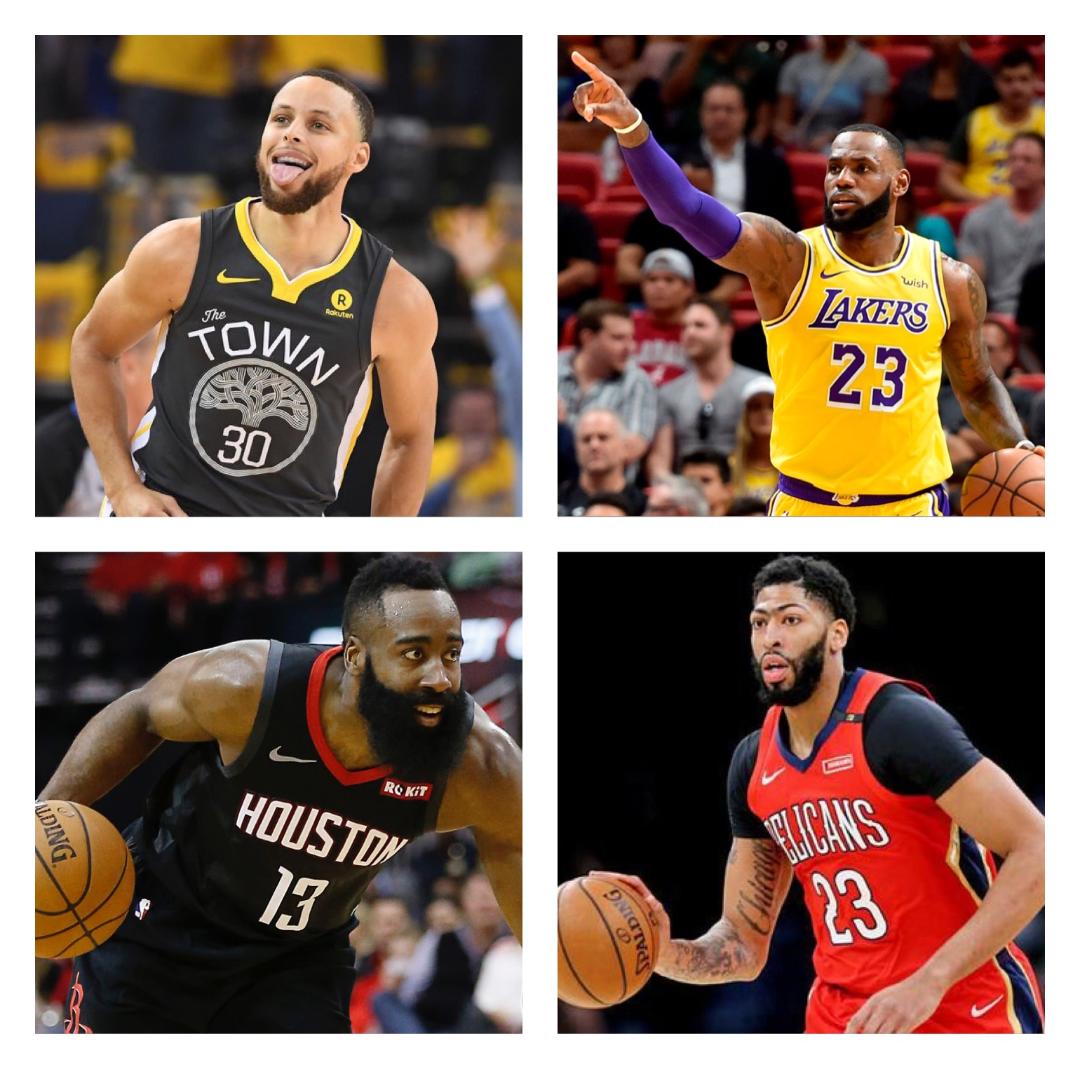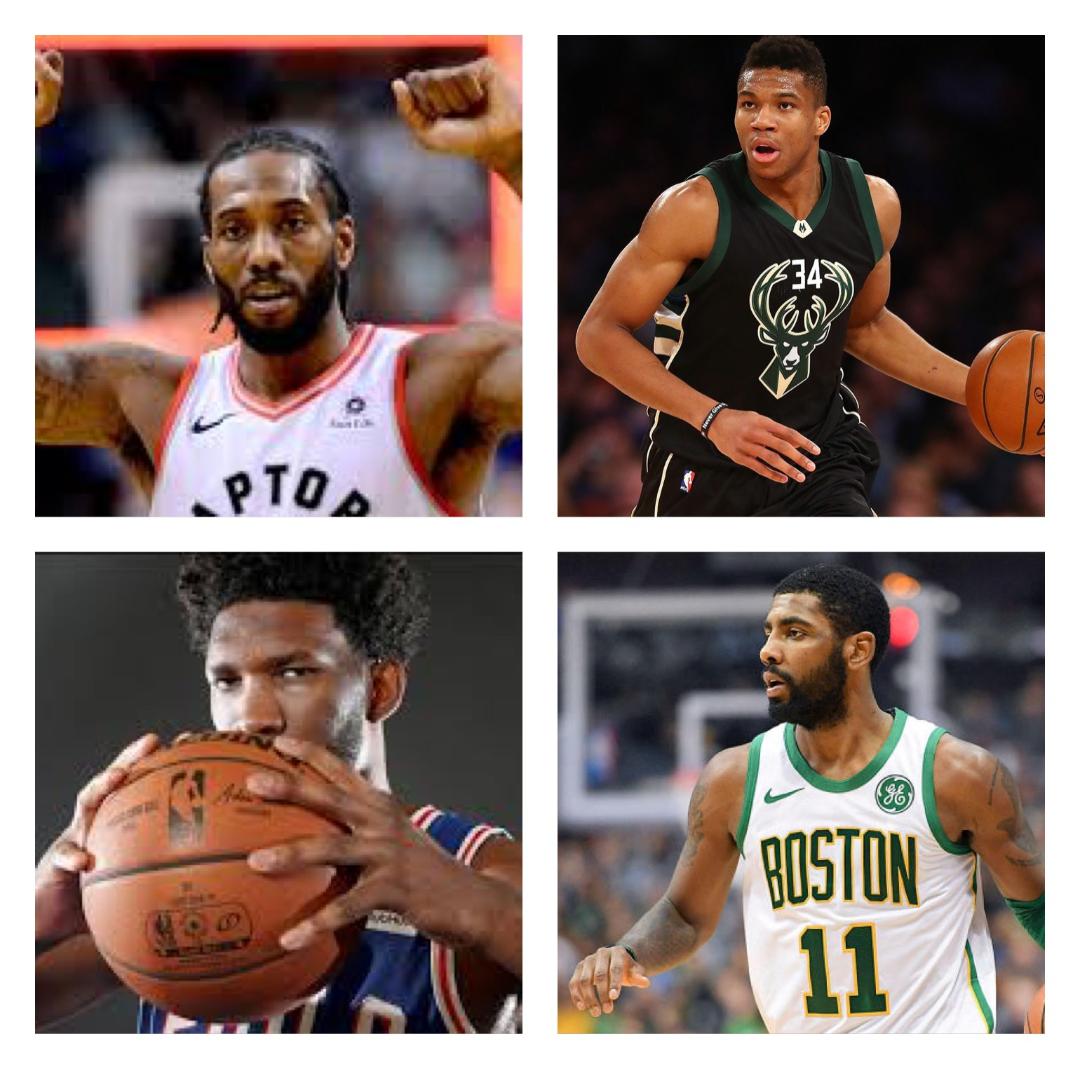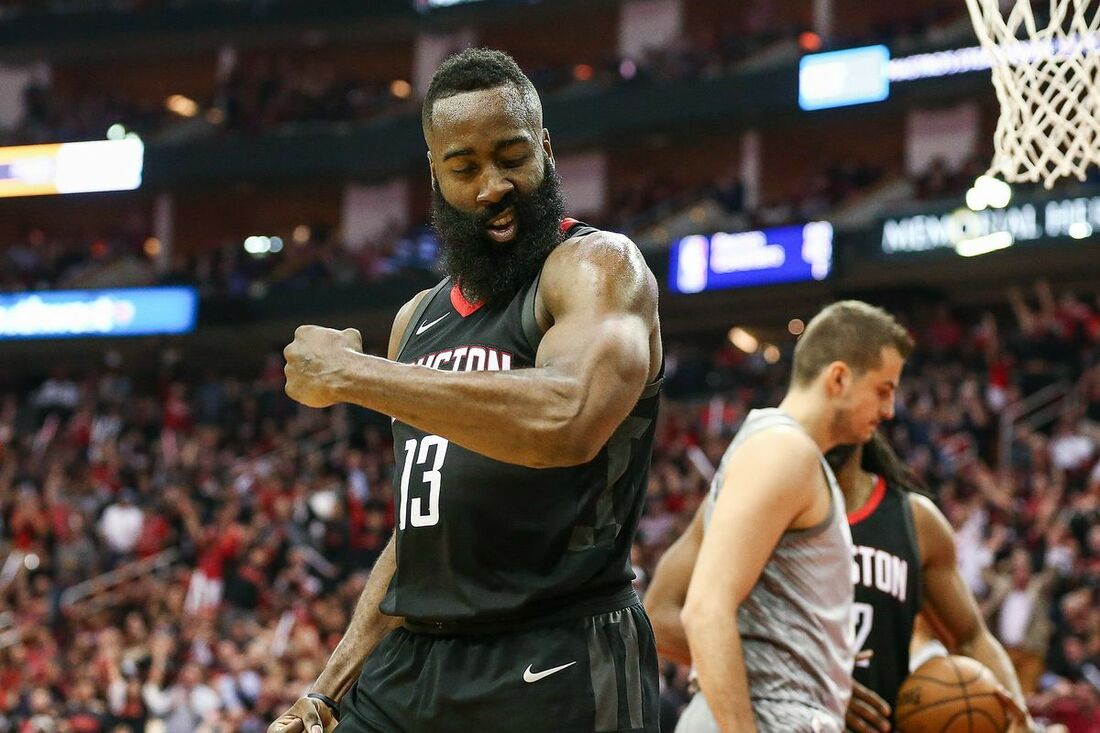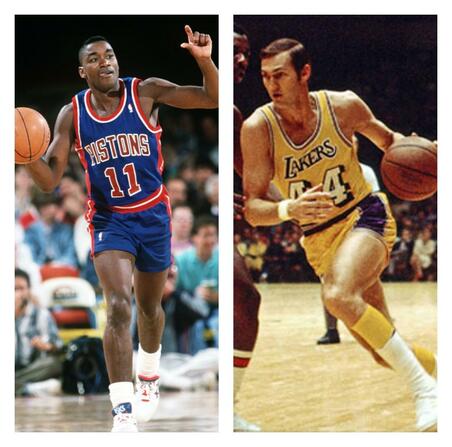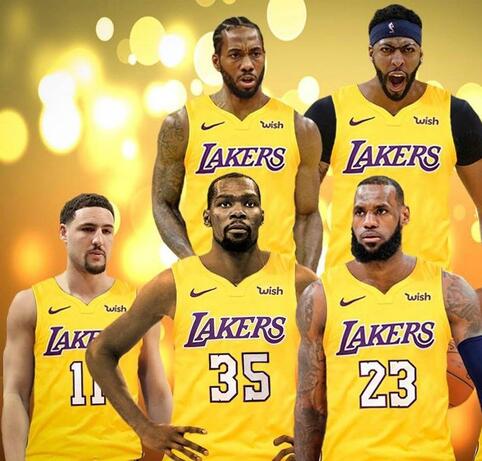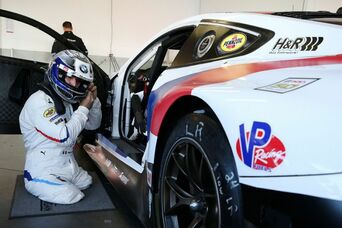 by Julian Spivey One of the biggest feel good stories in sports will be taking place this weekend, January 26-27, at Daytona International Speedway in Daytona Beach, Fla. during the 57th annual running of the Rolex 24 Hours of Daytona endurance race when Alex Zanardi takes to the track. Zanardi has one of the most decorated resumes of any driver racing the 24 Hours of Daytona this weekend having won back-to-back CART Championships (a now defunct series akin to the IndyCar Series) in 1997 and 1998. However, Zanardi’s experience is like no other driver in this race. Due to a horrific crash at EuroSpeedway Lausitz in Germany in September 2001 while Zanardi was at the top of his game he lost both of his legs when he lost control of his car on cold tires coming off pit lane while leading the race and had his chassis ripped in two when contacted by Alex Tagliani. Zanardi was so close to losing his life that day that he was given last rites. You would think that losing both legs in an accident would put an end to a driver’s career, but within two years of his horrific crash Zanardi was back on track in the FIA World Touring Car Championship for Team BMW with the help of hand brakes and accelerators. In 2003 he would finish seventh in his first race. Competing in the series from 2003 to 2009 he would help his team to four wins. Zanardi would turn his athletic pursuits to handcycling with a desire to eventually compete in the Summer Paralympic Games in London in 2012. Zanardi didn’t just achieve his goal of competing in the 2012 Paralympics but won two gold medals for his home country of Italy. He would return to the Paralympics at the 2016 games in Rio de Janeiro, where he would once again win two gold medals. Last September Zanardi competed in a triathlon, using a handbike for the cycling portion and a wheelchair for the running portion, in his home country and broke the Ironman world record in the disabled category with a time that was good enough to finish fifth overall in that competition. Zanardi has been quite the hero for people everywhere, especially those disabled and having lost their lower limbs. Now, at 52-years old, he sets his sights to endurance racing in one of motorsports most important races and venues. Zanardi is competing for the No. 24 BMW team in the GT Le Mans class, the endurance race has multiple classes of vehicles competing, where he will be teamed with John Edwards, Jesse Krohn and Chaz Mostert. The BMW is fitted with a custom-designed steering wheel that will allow Zanardi to accelerate, brakes and shift gears. The wheel will be removed when he hops out of the car and replaced with a standard one for his teammates. The driver changes that take place on pit road during the race are always among the most interesting aspects of the race, but Zanardi’s changes should be even more so. Video of Zanardi and his teammates, posted below, practicing these driver switches is riveting to watch. The Rolex 24 Hours of Daytona begins just after 1 p.m. central standard time on Saturday, Jan. 26 and a bulk of it can be seen on NBC Sports Network.
0 Comments
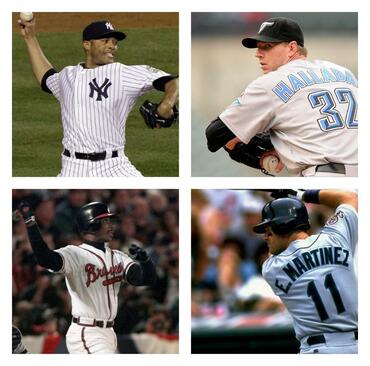 by Julian Spivey *portions of this article were previously published I’m obviously not a part of the BBWA (Baseball Writers Association of America) that has the opportunity to fill out a ballot for the Baseball Hall of Fame. But every year I like to fill out a mock ballot of which players I would vote for if I did have a real ballot. I don’t understand how there are members of the BBWA who aren’t filling out 10 spots on their ballot recently. There are so many worthy players on the ballot now that I had to leave some players that I think are worthy of the hall off my ballot. And, I’ll come right out and say if you’re looking for players like Barry Bonds or Roger Clemens on my ballot, I will never include players we know to have used performance enhancing drugs. Fred McGriff I’ve contended for years that Fred McGriff is the most screwed player from baseball’s steroid era. McGriff didn’t use PEDs, which makes his terrific offensive numbers not as impressive as the astronomical numbers of those who did. And, while the BBWA punished players (rightfully so) who did use PEDs they fail to consider that numbers like the ones McGriff compiled over his career (493 homers, 1,550 RBI, .284 average) would’ve gotten him into the hall of fame had he played in any other era. It’s clear McGriff is going to fall off the ballot, as this is his final year, and that’s a travesty. But I have high hopes that the veterans committee will one day elect him to Cooperstown, which seems incredibly likely after the shocking election of Harold Baines. Edgar Martinez The BBWA continues to show that they don’t believe designated hitters belong in the hall of fame and that’s wrong. I’m not a fan of the DH. I wish baseball had never allowed it and wish they would abolish it, but I’m not going to let my feelings toward the DH keep one of the best pure hitters of his era out of the hall of fame. I do believe Martinez is a borderline hall of famer, but he’ll appear on my ballot, nonetheless. A .312 career average with two batting titles, 1,200-plus RBI and more than 2,000 career hits is enough for me. It looks like there’s a great chance Martinez will indeed make the hall in this his final year on the ballot. Mariano Rivera Mariano Rivera is the greatest closer in baseball history and one of the most dominant pitchers the game has ever seen. With an MLB record 652 saves, which is 51 more than the next closest reliever, Rivera is an obvious lock for the hall of fame in his first year on the ballot. Roy Halladay Some people view Roy Halladay, who sadly lost his life in an airplane crash in 2017 at only 40 years old, as a borderline hall of famer, but he was arguably the most dominant starting pitcher of the ‘00s and that should be plenty to make him a hall of famer. Whether or not he’ll make it posthumously on the first ballot is to be seen, but with a career record of 203-105 and ERA of 3.38 it should be a no-brainer. Mike Mussina Mike Mussina never won a Cy Young Award, given to a league’s best pitcher, and I believe it’s the one thing that’s keeping him out of the hall of fame thus far. I don’t believe that’s right. There’s only so many Cy Young and MVP awards to go around and Mussina pitched in the same league as Roger Clemens, Randy Johnson and Pedro Martinez for his career. Mussina’s 270-153 career record and 3.68 ERA are good enough for me, not to forget he’s one of the best defensive players ever at his position with seven Gold Gloves. Jeff Kent Jeff Kent has more home runs than any second baseman in the history of Major League Baseball. He hit 377 in his career. Kent also had a very good .290 career batting average and almost 2,500 career hits. He also won the 2000 National League MVP and was a five-time all-star. For the second base position these seem like obvious hall of fame numbers. Yet, he’s never come close to being inducted in many years on the ballot. Why? The era he played in. People just don’t trust that he did it clean, especially because his career seemed to get off to a slow start and he didn’t really become the slugger he did until he teamed with notorious PED user Barry Bonds in San Francisco. But, I’m a fan of innocent until proven guilty and there just isn’t enough for me to keep Kent out of Cooperstown. Larry Walker This is Larry Walker’s second to last year on the hall of fame ballot and I don’t believe I’ve ever included him on my mock ballot, but some of the sabermetric guys have finally gotten me to believe in his candidacy. His career WAR (wins above replacement) is fifth highest of anybody on the ballot (and third highest of non-PED users) and his .313 batting average, even with a bulk of his career coming at hitter friendly Coors Field is impressive enough. Todd Helton and Lance Berkman Todd Helton and Lance Berkman are similar career hitters who though I watched their entire careers I wouldn’t say with 100 percent certainty that I believe are obvious hall of fame locks, but with each on their first year on the ballot and it being another stacked year for voters I worry about one or the other potentially not getting the five percent of the vote they need to remain on the ballot for future looks. I don’t want to see what happened to Carlos Delgado happen to either of these guys – I don’t believe it will – but just in case. Andruw Jones I’m not 100 percent sure that I believe Andruw Jones is a hall of famer. He might be one of those guys that falls more into the “very good” instead of “legendary” category. But I don’t believe he should fall off the hall of fame ballot, and I believe there’s a chance he could after receiving just 7.3 percent of the vote (you need at least five percent to remain on the ballot). That’s why I would use a spot for him over say Curt Schilling who won’t fall off the ballot. Jones has some offensive numbers that say “yeah, put him in the hall,” but mostly should be considered for the hall of fame because he’s of the greatest defensive players to ever play the game. Jones won 10 gold gloves in center field and is one of only six outfielders to win 10 or more Gold Gloves (the other five are either in the hall or will be). by Julian Spivey & Preston Tolliver Western Conference selected by Julian Spivey Picking the NBA rosters for the Western Conference is about as simple as it comes because the West is as stacked as ever, especially with the Eastern Conference’s best player of the last decade LeBron James coming over. The Western All-Star starters come off like an MVP ballot and picking the reserves isn’t that tough either because most of these guys are just snubbed from potential starting spots. Starters: Backcourt: James Harden (Houston Rockets) Stephen Curry (Golden State Warriors) If the NBA All Star Starters were revealed at the moment James Harden, the NBA’s reigning MVP and likely the front-runner to win it again this season, would not even be a starting player. Derrick Rose, who I don’t believe should be an All-Star would be. Rose is a great story having a revitalized year, but Harden not being a starter would be laughable. Harden is leading the NBA in scoring at 34.1 Points Per Game (PPG), which is five more points per game than the next closest player and his team is currently the fifth best in the West, whereas Rose’s Minnesota Timberwolves aren’t currently in the playoff hunt. Stephen Curry has become a Western Conference starting All-Star mainstay at this point, and that shouldn’t change this season. Curry is leading the Warriors in scoring (just barely over Kevin Durant) and his 28.8 PPG is good enough for third in the NBA. Despite being on a team filled with All-Stars Curry is playing his way back into MVP contention this season. Frontcourt: LeBron James (Los Angeles Lakers) – CAPTAIN Kevin Durant (Golden State Warriors) Anthony Davis (New Orleans Pelicans) My five picks for Western Conference All-Star starters just happen to be the top five in Points Per Game in the NBA this season with Anthony Davis second in the league at 28.9 PPG, Kevin Durant fourth in the league at 28.2 and LeBron James fifth in the league at 27.3. James is my choice for captain in the West as the most senior player on the All-Star team and potentially still the best overall player in the league. LeBron has single-handedly made the Los Angeles Lakers relevant again, and even though he’s missed a few weeks due to injury has that team in playoff contention. Davis continues to waste away on a bad New Orleans Pelicans team despite being one of the best overall players in the NBA. Many of us can’t wait to see him join a good team when his contract is up after next season. Durant continues to be one of the most solid players in the league, but if the All-Star voting was finished at the moment would have to rely on being chosen as a reserve as the fans would apparently rather see new blood like 19-year old rookie Luka Doncic, who I couldn’t find room on my roster for, starting for the West. As things stand Paul George would currently be a starter over both Durant and Davis, as well, though he is more deserving than Doncic. Reserves: Backcourt: Russell Westbrook (Oklahoma City Thunder) Damian Lillard (Portland Trail Blazers) Klay Thompson (Golden State Warriors) Russell Westbrook and Damian Lillard, who’s unfortunately been snubbed a couple of times in the last few years simply because 12 spots are not a lot for the number of star players in the conference, could easily be named starters if they just had the fan vote. Each should easily make the game for the West this year as both have their respective teams in the top half of the West standings. Westbrook is on pace to average a triple-double for the third consecutive year, something that had only been done in one season in the history of the NBA. Klay Thompson was my 12th and final choice to make the All-Star game from the West. Thompson is one of three Golden State Warriors to be averaging 22 or more points per game this season. I could easily see Donovan Mitchell of the Utah Jazz, Mike Conley of the Memphis Grizzlies or Jrue Holiday of the New Orleans Pelicans in this spot, but the Warriors are currently the second best team in the West and all of those other teams are on the outside looking in. This spot won’t matter anyway if Derrick Rose does indeed get voted into the game via the fans. Frontcourt: Paul George (Oklahoma City Thunder) Nikola Jokic (Denver Nuggets) Tobias Harris (Los Angeles Clippers) Karl-Anthony Towns (Minnesota Timberwolves) Paul George pretty much shocked the NBA last offseason when he decided to stay with the OKC Thunder, despite almost everybody thinking him signing with the Lakers and joining LeBron was a done deal. George is having a bit of a rejuvenation with the Thunder averaging almost 27 points per game on the same team as Russ Westbrook. He’s currently a starter in the fan voting. The Denver Nuggets have been perhaps the biggest surprise in the NBA this season with their current first place position in the Western Conference and their best player has been seven-foot big man Nikola Jokic, who has the fourth best Real Plus-Minus in the league behind James Harden, Anthony Davis and Paul George. Jokic averages a double-double per game for the Nuggets. The surprise team of the year has been the Los Angeles Clippers, who are currently fifth in the West and the best team in the Staples Center. The Clippers best player this year has been forward Tobias Harris, who’s averaging a career-best 21 PPG and eight rebounds a game. This would be Harris’ first All-Star selection and of all my picks he’s the one I’d be most surprised to actually make the roster. Karl-Anthony Towns of the Minnesota Timberwolves gets my final frontcourt spot in a close decision over Dallas Mavericks rookie Luka Doncic, who currently would be a starter via the fan vote. Towns’ numbers are just a bit better overall than Doncic’s and their respective teams are about the same record-wise, so I’m giving him the slight edge. I do wish the NBA would allow an extra roster spot in special circumstances so legendary platers like Dirk Nowitzki can make the All-Star game in their swan song seasons without taking a spot of a more deserving player. I know that fans would like the opportunity to see Nowitzki on a big stage one more time. Eastern Conference selected by Preston Tolliver Unlike the Western Conference, the early returns for All-Star voting are nearly perfect in regard to who should actually start on the team this year in the Eastern Conference, with the exception of Dwyane Wade, who received the obligatory retirement tour vote (more on that later). After that, the waters get a little murky: most reserves on the West team could, by all rights, be starters on that team; on the East, though, the reserves are set more firmly in their positions, with a pretty huge margin separating them from the starters. Starters: Backcourt: Kemba Walker (Charlotte Hornets) Kyrie Irving (Boston Celtics) Kemba Walker started the season by forcing his way into early MVP talks. In the first seven games of the season, he averaged 31.7 points per game, and though he’s tapered off a bit since (he now averages 25 points per game and 5.7 assists), he’s made it to the midpoint of the season with three 40-plus games, eight 30-plus game and a friggin 60-point game (which came in a loss to Philadelphia on Nov. 17) (But still, he’s the only player this season to break 60) (So that has to count for something, right?) (Right). Though the Celtics have been underwhelming this year, Irving has been a steady leader on the court, averaging 22.7 points and 6.4 assists per game. I don’t know that he’s the best point guard in the conference this season, but he certainly has the potential for it (right now, he’s vying for that honor with Walker). When he plays to his fullest potential, though, he’s one of the top five players in the league and should be back in the MVP talks by the end of next season. As of Jan. 10, Irving led the fan votes for starting guards, doubling the tally of Wade, who placed second. Also, I have Irving listed as a conditional captain here, because if LeBron is chosen to captain the West, this would make for great drama – a teacher/student sort of story, that will either end with Kyrie becoming the teacher for a nice, heartwarming story, or the teacher paddling the student near to death (which, by the way, is still legal in Arkansas). Frontcourt: Giannis Antetokounmpo (Milwaukee Bucks) Kawhi Leonard (Toronto Raptors) Joel Embiid (Philadelphia 76ers) As probably James Harden’s biggest obstacle to his second consecutive MVP, Giannis is a no-brainer. The Greek Freak averages a double-double with 26.7 points and 12.6 rebounds and has nearly singlehandedly carried a Bucks team from obscurity and intentionally-slippery courts to an Eastern Conference Champion contender. Giannis is our second conditional captain, because, as I suspect, Kevin Durant will be named captain of the West (I imagine they’ll switch it up from last year, though Harden could get it as well), and I want to see two dudes with weird alien arms battle it out. Leonard returned to his form from the good old days when he played for the San Antonio Spurs and liked it or liked it in as much as you could maybe from his deadpan facial expressions of yesteryear. He’s a likelihood for Defensive Player of the Year and as defense is more of a myth than a fundamental of basketball in the All-Star Game, he probably won’t be that fun to watch, but he’s earned his place on the starting roster regardless. Embiid’s personality may distract from his on-court performance, but he has a stronger stat line than Giannis, averaging 26.9 points and 13.3 rebounds per game (Giannis does lead Embiid in assists, though). Embiid is currently placed third in fan voting for the front court, but it’s not just his celebrity on Twitter and Instagram that netted him more nearly three times as many votes as fourth-place Jayson Tatum – he’s a monster and will be fun to see make his return to the All-Star court. Embiid is our third and final conditional co-captain (in the event that anyone other than LeBron or Durant is chosen to captain the West), only because I want to see him try to draft Rihanna seven times. Reserves: Backcourt: Kyle Lowry (Toronto Raptors) Victor Oladipo (Indiana Pacers) Ben Simmons (Philadelphia 76ers) Dwyane Wade (Miami Heat) With the arrival of Kawhi Leonard and the subsequent divorce of the East’s best backcourt, Kyle Lowry has been out of the spotlight this season. He’s averaging only 14 points this season (continuing a slow decline over the last few years) but has a conference-best 9.6 assists. He probably won’t flash too much on the All-Star court, but it’ll be nice to see him set up others to. Since being traded to Indiana last season, Oladipo has established himself as the best two-guard in the East. He earned Most Improved Player last year and continues to improve with each game. You wouldn’t guess it looking at his stat line – he’s currently sitting at 19.8 points, 5.8 rebounds and 5.2 assists – but he’s dragging a Pacers team that’s supposed to be tanking to home-court advantage in the playoffs (the team is seeded at the third spot in the conference, as of Jan. 14). And any player who drags a team that should be tanking to the playoffs – even if it’s to the chagrin of their owners – has to be a star. Simmons deserves the honor for a lot of reasons: 1. He’s one of the best point guards in the league and his stock only continues to rise and there’s no telling how high his ceiling is; 2. He’s going to be really fun to watch in the game; 3. He has to put up with Joel Embiid (which is probably kind of fun) and Jimmy Butler (which is probably not fun), so we kind of owe him this. Wade gets in on the Kobe Bryant rule, which officially states that any player who led their team to more than one championship (sorry, Dirk) is automatically entered into the All-Star games during their last couple of years in the league, even when they’re not in the top 12 best players in their conference (or in the top 12 players on their team). His inclusion on the team is more obligation than earned, and that’s okay. I don’t mind seeing him suit up for it one more time. Frontcourt: Jayson Tatum (Boston Celtics) Blake Griffin (Detroit Pistons) Nikola Vucevic (Orlando Magic) As a Boston fan, I could write love poems about Jayson Tatum, the 20-year-old Duke standout with shoulders strong and wide enough to carry the Celtics’ championship hopes for the next 10 years. Tatum was forced to grow up fast last year with the absence of Gordon Hayward and, later in the season, Irving, not unlike a young boy whose parents were murdered in front of him outside a theater, who was then raised by a butler (in this case, Alfred Horford) who helped him to toughen up and learn the skills required to one day save all of Gotha…err, Boston. In any case, Tatum established himself as a star worthy to construct a dynasty around last season, and it’s time he’s given his rightful place in the All-Star Game. Griffin has undergone a reinvention since being traded from the Clippers last season, reestablishing his stardom not only as a player who dunks with the power and velocity that you would expect from Godzilla, but also a reliable player wherever the Pistons need him, currently averaging a career-best 25.6 points, alongside 8.3 rebounds and 5.3 assists. Vucevic is the dark horse of not just the Eastern Conference, but the entire NBA (seriously – I draft him late every year in my Fantasy league, and he puts up some of the best numbers every season). He’s averaging 20.1 points and 11.9 rebounds per game this season and is a bright spot in the depressing and perpetual tank-machine Orlando Magic. He’s one of the best centers in the NBA with absolutely none of the credit for it, and it’s time we give him his due (for at least two minutes on the court). by Julian Spivey & Preston Tolliver How Much Can One Great Week Affect an MVP Race? Julian: James Harden had one of the greatest runs in NBA history at the end of December and into the first part of January and that got us to thinking how much can one great week or stretch impact an MVP race. Harden, the reigning NBA MVP, is coming off the best stretch of his career in which he averaged more than 40 points per game in the last week of 2018 leading his team to its hottest point of the year and doing it all without one of the best point guards in the league in Chris Paul. Harder was named the NBA’s Player of the Month for December, in which he averaged almost 36 point per game, eight assists and six rebounds and the Houston Rockets went 11-4 and sprung from out of the playoff hunt into the top few teams. When he averaged more than 40 points a game over a 10-game streak last month he joined Michael Jordan and Kobe Bryant as the only players in league history to score 400 points over a 10-game span. Can a great – really, historical – weeks have an impact on the league’s MVP race. Yes. But, I’m not sure a terrific week for a player in the first half of the season will be in the minds of MVP voters come the end of the season. If Harden’s week had come heading into the playoff stretch than it would’ve had a bigger impact. I do think Harden is well on his way to winning his second consecutive MVP, but it’s certainly too early to count out others like Giannis Antetokounmpo, Lebron James, Steph Curry and others. Preston: Let me tell you a story – an uplifting tale about a basketball player who, for a couple of weeks in 2012, flew among the stars. In 12 games leading to the All-Star break, this young wunderkind was one of the best players in the National Basketball Association, carrying a team with more dead weight than the Flying Dutchman to a 9-3 record. This bright-eyed knucklehead was named Jeremy Lin, and after that All-Star break, he fell from the skies with the velocity of Icarus tied to a thousand anvils. Can a good (or even great) (or even phenomenal) (or even marvelous or other-worldly or ungodly) stretch of basketball change the outcome of an MVP race? Sure. But the pieces have to be there on both sides of that stretch. For a player to be deemed most valuable, they have to play at a ridiculously high level, for the most part, from the first game of the NBA season to the last game of the NBA season. James Harden has put together one of the best stretches in recent memory and provided he doesn’t enter his playoff form super early this year (and assuming Chris Paul’s eventual return doesn’t throw things super sideways), he’s probably looking toward his second consecutive MVP. But it’s not a lock, because basketball players historically play their best basketball in the second half of the season. Don’t count out LeBron, or Giannis, or Kyrie, or even Kemba freakin’ Walker (but you can definitely count out Jeremy Lin). Who is the Greatest NBA Player to Never Win Most Valuable Player? Preston: The omissions of great players from NBA’s Most Valuable Player award are many, and almost always not because they didn’t play at a peak level, but because there was another Hall of Fame player there who cast just big enough of a shadow over everyone else to get the award. John Havlicek and Jerry West are huge snubs for eras in which Bill Russell and Wilt Chamberlain took nine of the awards in an 11-year span. Of the nine MVP awards given between the 1983-84 season and the 1991-92 season, only three men got them: Larry Bird, Magic Johnson and Michael Jordan (Jordan would go on to win two more, in 1996 and 1998). That doesn’t mean there weren’t players undeserving of the award in that stretch – it just means that those players played alongside three of the top six or seven players in the history of basketball. And that’s where my answer for this question comes in. Punching and kicking and hobbling during the passing of the torch from Magic to Michael, Isiah Thomas led the Bad Boy Detroit Pistons to two championships between the Chicago Bulls and Los Angeles Lakers eras (note: he did win a Finals MVP in 1990, a series in which he averaged 27.6 points and 7 assists per game). In the 1989 Finals, he sprained his ankle but still put up 25 points in the last quarter of the game (though they’d go on to lose that game and the series that year). He didn’t just shine in the postseason. In 1985, he averaged 21.2 points and 13.9 assists a game (Bird, who won the MVP that year, averaged 28.7 points and 6.6 assists). Those numbers tapered off as he went through his career, but he was still a threat into the early ‘90s. His Pistons effectively put an end to the Magic Era and prolonged the start of the Jordan one. Isiah Thomas, all 6 feet, one inches of him, is the greatest player in the NBA to never receive a regular season MVP award. Julian: I understand it being hard to win a Most Valuable Player award when you share your entire career basically with the two greatest centers in NBA history: Wilt Chamberlain and Kareem Abdul-Jabbar, one of which you shared a team with for a while. But Jerry West is the greatest player in NBA history to never win MVP. After all, he’s the guy the NBA patterned its own logo after. Remarkably West finished second in MVP voting on four different occasions, including three years in a row from 1970-1972. In the 1971-72 season, the only year in which West would win a championship leading the Lakers to the greatest year in NBA history at that time and a still standing record 33-game winning streak he would finish runner-up to Abdul-Jabbar. The second greatest NBA player to never win MVP was West’s longtime Lakers teammate Elgin Baylor, who would finish second in voting twice and just so happened to do so during the Boston Celtics ‘60s dynasty and Oscar Robertson averaging a triple-double for an entire season. What Do You See the Los Angeles Lakers Doing This Offseason? Preston:
Here’s the problem with the Los Angeles Lakers’ signing of LeBron James last year. They signed him for four years, but the team probably won’t be a serious title contender until maybe the third year of his contract. They did little else to prepare for the future last year, and Anthony Davis – the seemingly destined next star – doesn’t become a free agent for another year-and-a-half (a trade is possible, but I don’t expect New Orleans to ship their star player to the competition). So, let’s answer this question by assuming that in 2020, Anthony Davis will definitely be a Laker. What the Lakers need to do is fill their other gaps. If they want Anthony Davis, then they don’t need Demarcus Cousins, who becomes available this summer. They also don’t need Kevin Durant, who also becomes available this summer. They don’t need Kawhi Leonard, who very much does not have a Los Angeles personality. What the Lakers need is a better backcourt. That leaves a lot of good options in this summer’s field of free agents. Klay Thompson defecting from Golden State to Hollywood would be pretty fun. Kemba Walker also comes open this summer and could really help the Lakers space the floor. Malcolm Brogdon could be a good pickup, too, and Terry Rozier is dying for a shot at a starting role that he definitely will not be getting in Boston. But let’s be real. It’s the Lakers, and if their moves last season tell us anything, it’s this: this summer, the Los Angeles Laker will sign 2012 MVP snub Jeremy Lin. Julian: LeBron James wants to win and he’s going to want to win now. I don’t think he’s going to want to wait until the third year of his four year deal (which could potentially mark the end of his career). Also, this is the longest possibly ever that the Lakers have been irrelevant, and that franchise has to be itching to get back into contention like no other. I agree Anthony Davis is likely to join the Lakers at least when his free agency period comes up in the summer of 2020, but if I’m the Lakers I’m going to try to see if I can make a deal for him early and lock him up long term. I don’t know how hard that would be to accomplish and the Lakers might not want to give much up. Preston said, “the Lakers don’t need Kevin Durant.” Hell yes, they do need Kevin Durant. There isn’t a team in this league that doesn’t need Durant. He’s one of the three best players in the league and if they have any opportunity at all to sign him, they should try. If that means not having a shot for Davis by 2020 than so be it. I feel the same way about Kawhi Leonard. If you can get him, go get him. Klay Thompson does seem like the most likely option for the Lakers, but I’d personally hate to see that as it wouldn’t be fun for me to see the “Splash Brothers” split up in Golden State. I wouldn’t be surprised to see James, Leonard and Thompson all on the Lakers roster next season. We’ll see what happens. |
Archives
July 2024
|
